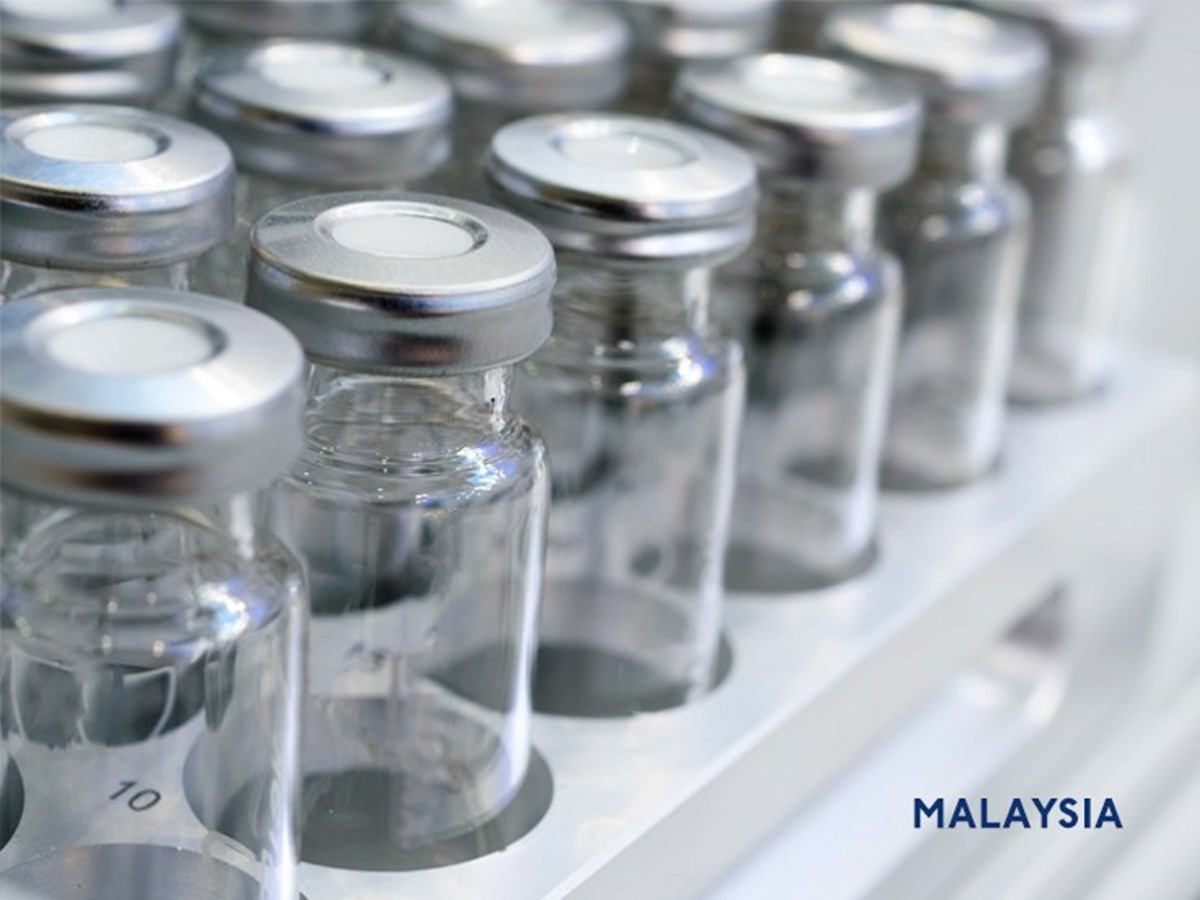
Knowledge Highlights 16 April 2025

On 11 January 2021, the Prime Minister of Malaysia announced the imposition of a “Movement Control Order” (“MCO”) in the states of Penang, Selangor, Melaka, Johor and Sabah, and the Federal Territories of Kuala Lumpur, Putrajaya and Labuan in order to contain the spread of COVID-19 in Malaysia. Another six states (Pahang, Perak, Negeri Sembilan, Kedah, Terengganu and Kelantan) have been placed under a “Conditional Movement Control Order” (“CMCO”), whereas Perlis and Sarawak have been made subject to a “Recovery Movement Control Order” (“RMCO”) for the same period. These measures will remain in force for two weeks from 13 January until 26 January 2021 (“MCO Period”).
The regulatory basis for the measures announced by the Prime Minister may be found in the following regulations issued under the Prevention and Control of Infectious Diseases Act 1988 (“PCID Act”):
Prohibition on movement and gatherings
Restrictions on travel within and between “infected local areas”
Movement within an “infected local area” or from one “infected local area” to another is prohibited. Effectively, this prohibits travel within and between the states and federal territories of Malaysia, which have been declared to be “infected local areas”.
The only exceptions are travelling for the following purposes:
The term “essential services” has been defined to comprise the services specified in the Schedule to the PCID MCO Regulations, and includes any activity and process in the chain of such essential services. We have further elaborated on the meaning of “essential services” below.
The PCID MCO Regulations also set out conditions for travelling, for example, a person is generally restricted to travelling within a 10 kilometre radius from his place of residence in order to purchase food or daily necessities or to seek healthcare (or to a place nearest to his residence if such amenities are not available within a 10 kilometre radius). For the purposes of controlling the movement of persons purchasing food, owners and operators of food selling businesses may only carry out business by way of drive-through, take away or delivery.
The exceptions described above in relation to permitted movement will not apply to the extent contrary directions are made under Section 11(3)(b) of the PCID Act. This Section provides broad powers to any “authorised officer” to direct persons living in an infected local area to subject themselves to isolation, observation or surveillance. Under the PCID Act, an “authorised officer” refers to any Medical Officer of Health, any health inspector or any officer appointed by the Minister of Health under Section 3 of the PCID Act, and would include the Director General of Health (“Director General”).
Prohibition on movement to places subject to enhanced movement control order
No person is allowed to enter or exit from a place that is subject to an “enhanced movement control order” except any person who is providing healthcare and medical services or who has been given permission by an authorised officer. The term “enhanced movement control order” here refers to directions given by an authorised officer under Section 11(3) of the PCID Act. Section 11(3) of the PCID Act provides broad powers to an authorised officer to direct persons living in an infected local area to subject themselves to such measures as the authorised officer considers necessary to control the disease.
Control of gatherings and processions
Social gatherings within any infected local area such as weddings, conferences, meetings, seminars, courses and group sport activities are prohibited. Notwithstanding the above, a person may gather or be involved in a gathering for the purposes of religion at any mosque or place of worship or funeral ceremony subject to any directions issued by the Director General. In addition, participation or involvement in any processions are prohibited.
Movement for purpose of examination
Any person who is required to sit for any examination "determined" [sic] by the relevant authority at any learning institution or any professional body, or is involved in providing lessons for the preparation of such examinations or in the conduct of any such examinations is allowed to move from one place to another place within any infected local area or between infected local areas.
Movement due to special or particular reason
If a person needs to move from one place to another place within any infected local area or from one infected local area to another infected local area for a special or particular reason, that person must obtain prior written permission of the police officer in charge of the police station nearest to the residence of such person for such movement. No specific definition has been given to the term “special or particular reason”.
Movement to carry out works on infrastructure
Travelling within or between infected local areas is also allowed if such travel is for the purposes of:
Mandatory health examination
Any person entering Malaysia from overseas may be required by an authorised officer to undergo a health examination upon his arrival in Malaysia.
Employer to ensure that foreign employee undergoes COVID-19 test
An authorised officer may direct any employer to ensure that foreign employees undergo COVID-19 detection testing and the employer will in such circumstances be required to bear the costs for such test. The term “foreign employee” for this purpose refers to a holder of a Visit Pass (Temporary Employment) issued under Regulation 11 of the Immigration Regulations 1963.
Further directions
There is also a general provision allowing the Director General to issue any directions in any manner, whether generally or specifically, to any person or group of persons to take such measures for the purposes of preventing and controlling any infectious diseases within any infected local area.
Essential services allowed to operate under the MCO
On 12 January 2021, the Ministry of Internal Trade and Industry (“MITI”) issued a media release (“Media Release”) and Frequently Asked Questions (“FAQs”) document in relation to the essential economic sectors permitted to operate during the MCO, which include the following sectors: industrial and manufacturing, construction, services, distribution and trading, plantation and commodities This is also generally in line with the list of “essential services” as set out in the Schedule to the PCID MCO Regulations, which comprises 48 items, including a “catch-all” category of any service, work, industry or business as may be determined by the Minister of Health.
Based on the Media Release and FAQs, and notwithstanding that there does not appear to be such a requirement under the PCID MCO Regulations, manufacturing companies are required to register with MITI in order to operate during the MCO Period. Companies that have previously registered with MITI via MITI’s database (i.e. the COVID-19 Intelligent Management System (“CIMS”)) will not be required to re-register with MITI. Instead, only a notification of registration “confirmation” is required to be downloaded via the CIMS portal at (https://notification.miti.gov.my/). Manufacturing companies that have not yet registered with MITI may do so via the CIMS system at (https://notification.miti.gov.my/).
SOPs for businesses allowed to operate under the MCO
The FAQs issued by MITI provide some guidance on economic activities allowed to be carried out during the MCO. Generally, the FAQs provide that companies that are categorised as providing “essential services” may operate throughout the MCO Period. However, only 30% of employees in the “management group” of such companies are allowed to work in the office, and employers are required to determine policies for the attendance of employees in other categories (e.g. those providing operational and support services), bearing in mind the need for strict compliance with the SOPs. Employees of companies which do not fall within the “essential services” categories are required to work from home. In addition, both MITI and the National Security Council (“MKN”) have published general and industry-specific Standard Operating Procedures (“SOPs”) in relation to the MCO (as well as the CMCO and RMCO). The SOPs are available at (https://www.miti.gov.my/redir/pkp/sop.html) and (https://www.mkn.gov.my/web/ms/sop-pkp-pemulihan/).
A question does arise as to the legality of the SOPs issued by MITI and MKN, as these were not issued pursuant to the PCID Act. Under the PCID Act and the PCID MCO Regulations, general powers to give directions have been conferred on “authorised officers” and the Director General. There does not appear to be any indication, however, that such SOPs constitute the directions of such authorised officers or the Director General.
CMCO and RMCO
For completeness, we have briefly set out below some salient provisions in relation to the CMCO and RMCO imposed in other states pursuant to the PCID CMCO Regulations and the PCID RMCO Regulations respectively.
The PCID CMCO Regulations
The PCID CMCO Regulations are applicable to the States of Kedah, Kelantan, Negeri Sembilan, Pahang, Perak and Terrenganu and persons in those states may not engage in the following prohibited activities:
The PCID CMCO Regulations also set out prohibitions on, inter alia, movement to a place subject to an “enhanced movement control order”. In addition, persons may not move from one infected local area to another without the approval of an authorised officer, which effectively means that inter-state travel is prohibited. Although processions are prohibited, persons may gather or be involved in gatherings including at any place of worship or religion subject to the directions of the Director General.
The PCID RMCO Regulations
The RMCO is applicable to the states of Perlis and Sarawak. The PCID RMCO Regulations set out a list of prohibited activities, which is identical to the list for the PCID CMCO Regulations. The key difference between the PCID RMCO Regulations and the PCID CMCO Regulations is that under the former, any person may move to another infected local area subject to the directions of the Director General. The key differences between the rules applicable to areas under a CMCO, and those under a RMCO, lie in the detailed and operational SOPs issued by MKN, rather than in the PCID CMCO Regulations and PCID RMCO Regulations themselves.